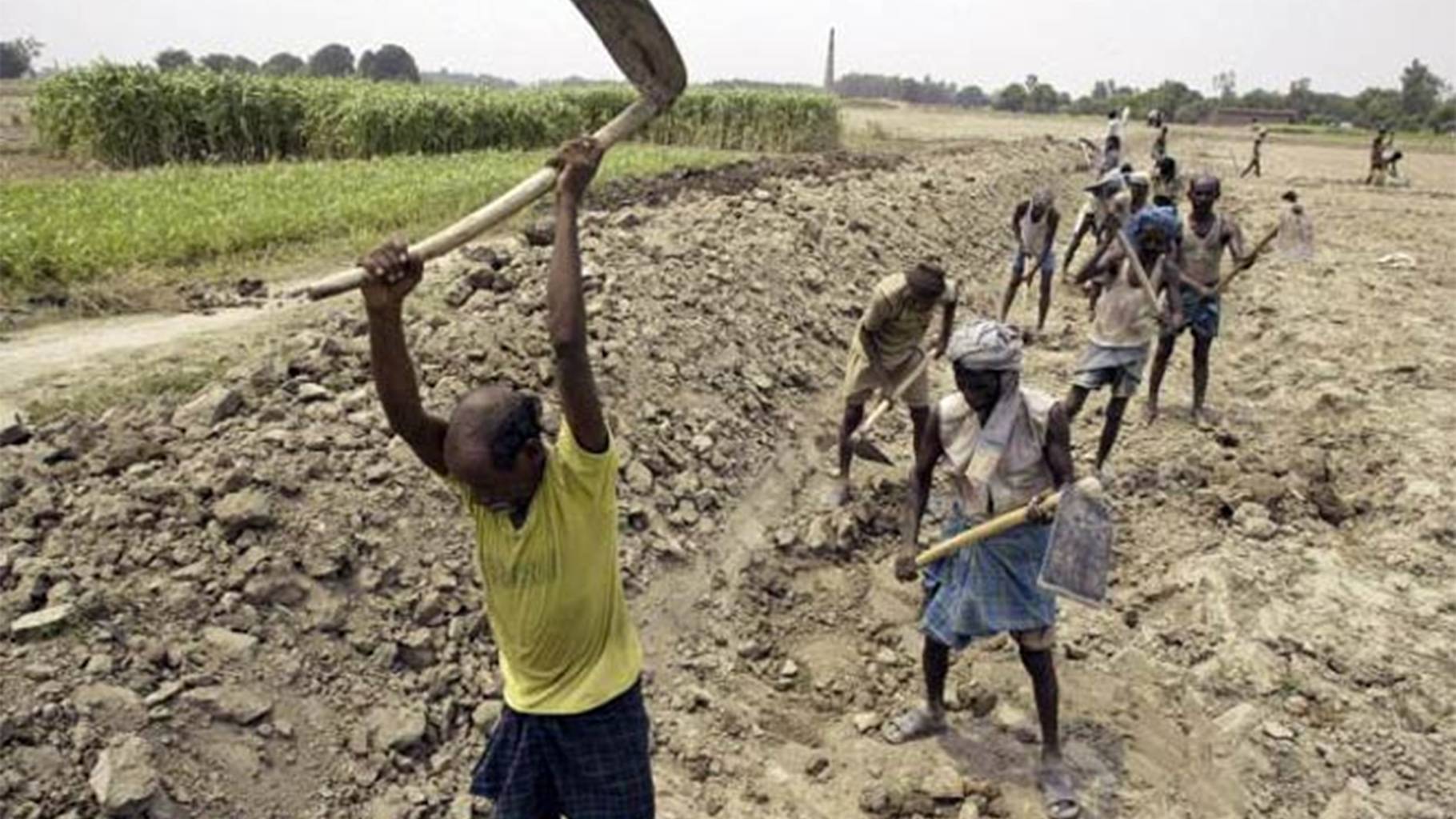
World’s largest job scheme faces uncertain future for lack of funds

Joynal Mandal had to return to his village in West Bengal from Surat in Gujarat almost empty handed in the wake of a nationwide lockdown announced in March last year.
Fortunately for him, on his return home at Gopalpur village in East Bardwan district, Mandal found some work under the Mahatma Gandhi National Rural Employment Guarantee Act (MGNREGA), the world’s biggest employment guarantee scheme.
The scheme, once mocked by Prime Minister Narendra Modi as the biggest failure of the United Progressive Alliance government, helped Mandal overcome the lockdown woes.
Encouraged by the steady employment he got under the scheme throughout the year, Mandal said he has decided to stay put in the village even after the lockdown was over.
Enacted in 2006, the MGNREGA aims to provide at least 100 days of unskilled wage employment to adult members of a rural household in a year. In Bengal, the scheme is currently a lifeline for around 91.72 lakh rural poor in Bengal.
Delay in getting payment and no fresh allotment of work has, of late, has left many like Mandal wonder whether the MGNREGA scheme can continue to provide him employment in his village.
“For over a month, I did not get any job under the scheme and also did not get payments for the jobs done,” he said, adding that if the current situation prevails he would be compelled to leave the village again in search of a job.
The delay in MGNREGA wage payment is in contravention to the law that stipulates payment within 15 days.
According to the latest national tracker of People’s Action for Employment Guarantee (PAEG), the Union government is yet to make 15 per cent of the total payments under MGNREGA this year, an indication that the mega scheme is facing severe fund crunch.
Also read: MGNREGA fallout: Farmers turn to drones in TN to spray pesticides
The Union budget 2021-22 allotted ₹73,000 crore for the flagship scheme, which is 34 per cent less than the revised budget for 2020-21. About 90 per cent of the fund has already been utilised in the first half of this financial year, leaving many states, including West Bengal, with negative net balance of funds.
This precarious financial position raised questions about the possibility of effective implementation of the scheme for the rest of the year, pushing many like Mandal towards an uncertain future.
West Bengal, as on September 30, has a net negative balance of ₹2,393 crore, the highest among all the states.
Unless the Centre urgently allocates additional funds, the state will not be able to continue the scheme for the rest of the year, said an official of the West Bengal Panchayat and Rural Development Department.
Also read: Now, a govt portal will help senior citizens find jobs. Check out details
“We have crossed the target of creating 22 crore person-days of work set by the Centre in October itself. The state has created over 23 crore person-days of works until now, overshooting the allocation,” the official said.
The state government is yet to get any response to several communications the state P&RD department made to the Centre for the last over a month seeking additional allocation of funds, compelling the state to halt the scheme in most rural areas, the official added.
“We even had a meeting with the officials of the ministry of Rural Development to increase the number of person-days. But so far we have not heard anything from them on the matter,” he added.


